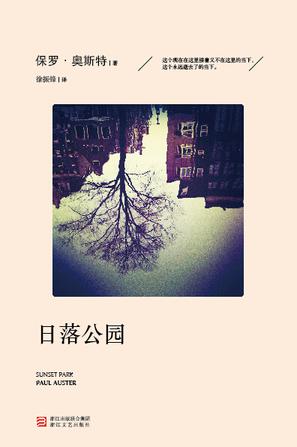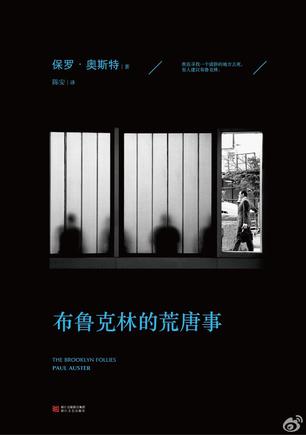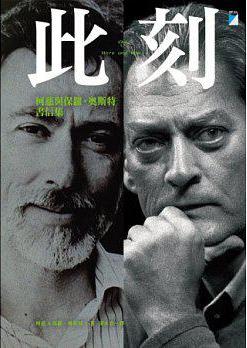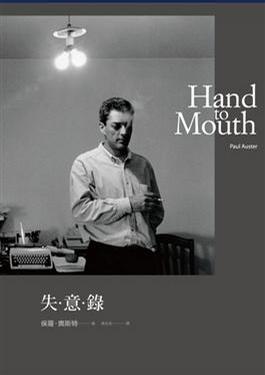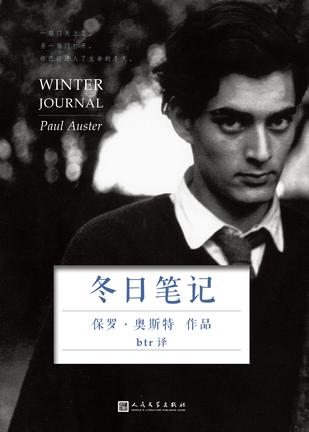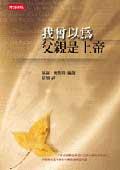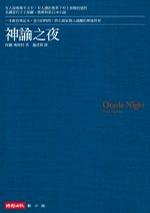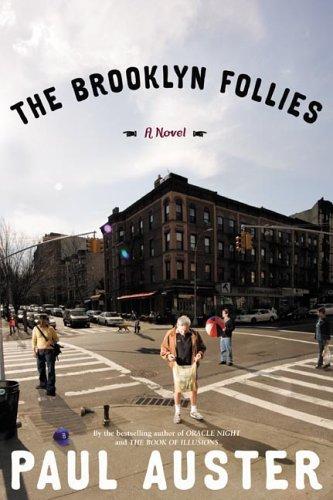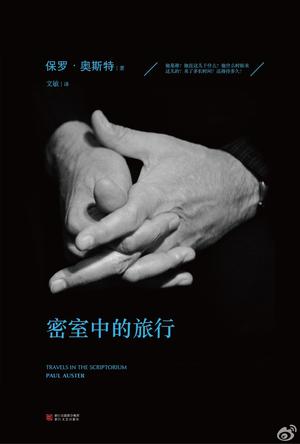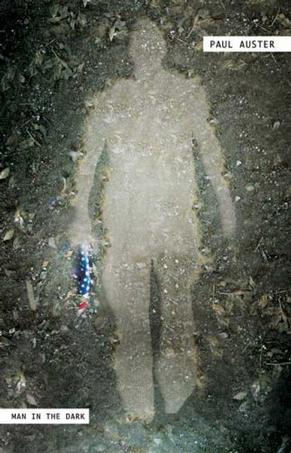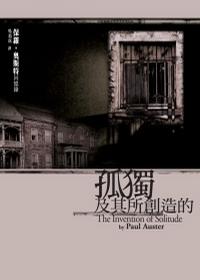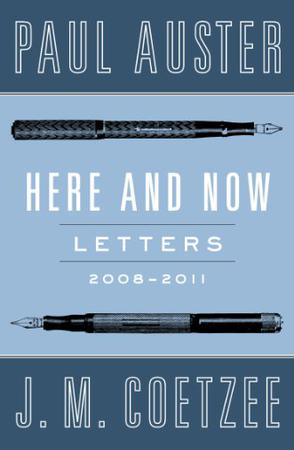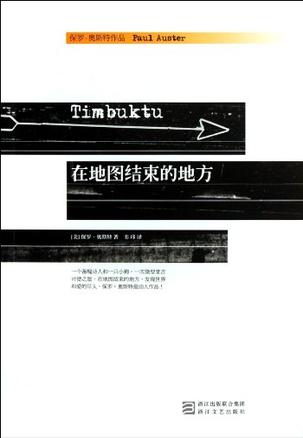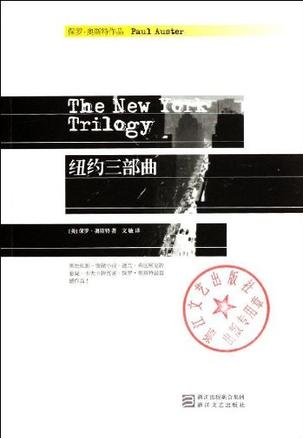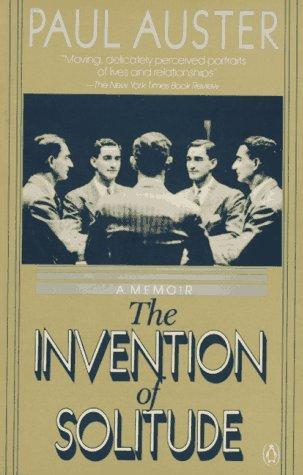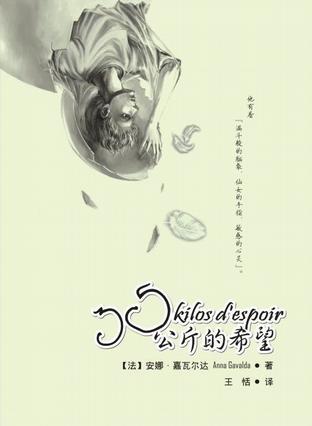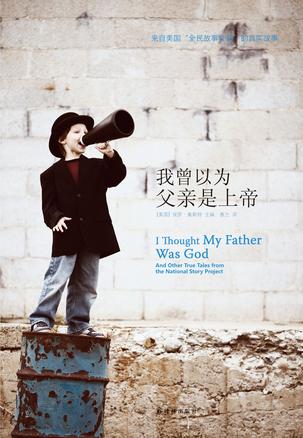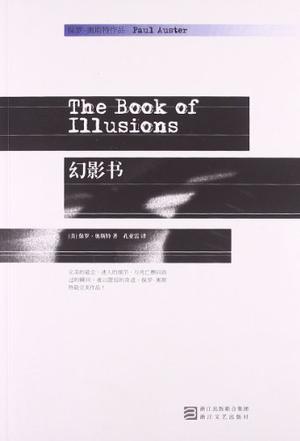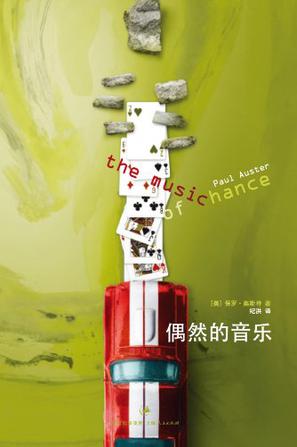欢迎来到相识电子书!
标签:保罗·奥斯特
-
日落公园
迈尔斯·海勒儿时遭母亲抛弃,跟着再婚的父亲与继母一起生活。十六岁时,他在与继兄大闹中失手,导致继兄车祸身亡,人生从此遁入了灰暗。后来,迈尔斯从大学退学,远走他乡,与家人失去了联系。 2008年美国金融危机后,迈尔斯来到佛罗里达,在那里认识了少女皮拉尔并与之坠入爱河。机缘巧合,他接受了鼓手朋友宾·内森的邀请,回到纽约,住进了日落公园附近的一栋非法占据的房子。这栋房子里还住着其他两位房客——正在写博士论文的艾丽斯·伯格斯特龙和画家埃伦·布赖斯。几个年轻人背负着各自的过去,带着心头的伤口,在平淡的生活中互相慰藉,陪伴彼此跨越了时间的伤痛,在告别与坚持中打开了人生的另一扇窗口。 -
布鲁克林的荒唐事
“我在寻找一个清静的地方去死,有人建议布鲁克林。”身患癌症、家庭破碎的中年男子内森·格拉斯,退休后特意搬到布鲁克林,打算在这个童年的故乡了却残生。没想到,这里才是他人生的起点……他探索布鲁克林的一切:街角的餐馆、餐馆里的女招待、二手书店的老板,居然还邂逅了多年未见的外甥汤姆。 在与同样失意的汤姆携手探索新生活之余,内森逐渐发现身边的小人物,不是有着不堪回首的过去,就是过着徒有其表的生活。但他们都选择了布鲁克林止痛疗伤、重新开始。这些小人物的命运,也逐渐与他的人生交错纠缠。 有一天,汤姆的外甥女、九岁半的露西突然敲开了他们的家门。无论问她什么,她都不说话。两个男人的生活,因为这个小女孩的闯入而改变…… 《布鲁克林的荒唐事》是保罗·奥斯特最热情、最有生气的长篇小说,是一支普通人光荣而神秘生活的赞歌,感人而令人难忘。 -
此刻: 保羅.奧斯特與柯慈書信集
《此刻》Here and Now: Letters 我們說話時,就讓年輕人翻白眼吧! 一個是狂熱激情的小說家,電影導演,沉迷於生命中的重複與巧合; 一個是諾貝爾文學獎得主,冷靜挑剔的思想家,不妥協的道德主義者。 這是一場長達三年、史無前例的交鋒! 一個狂熱激情的創作者VS.一個冷靜挑剔的思想家 三年書信,他們到底在談些什麼? ☆為何友誼比熱戀持續得久? ☆收到讀者寫信來罵人,怎麼辦? ☆男女從情人變朋友,是昇華還是墮落? ☆亂倫的吸引力何在? ☆球賽就像類型小說,結局千篇一律,卻讓人趨之若鶩? ☆沉迷於運動比賽就像「犯罪」:明知不對,但卻因肉體軟弱而不能自拔? ☆二○○八金融風暴之後,人們是真的變窮了? ☆小說家不接受訪談,因為那是一種「不是交談的交談」? ☆保羅.奧斯特對法蘭岑的小說觀有何意見? ☆小說家的苦惱:要虛構一個角色?或是有個參照的對象? ☆為什麼人類寧可生活在自己所創造出來的悲慘現實? 保羅.奧斯特和柯慈於二○○八年二月第一次碰面,不久,柯慈便寫信給奧斯特,建議互相通信,以「激發彼此的火花」,《此刻》即為他們三年來的書信集結。信中話題廣泛、無所不包,大至世界經濟、人類處境,與小說家的語言策略;小至個人的旅遊見解、對情愛的詮釋,以及讀者來信所造成的困擾……文學家心底的千愁萬緒,在其中表露無遺,句句直接、坦誠,暢所欲言,在作家的自我觀照與來回思辨之間,思想的靈光,俯拾即是。 本書特色 ★當代文學巨擘最發人深省、妙趣橫生的書信集! ★親眼見證保羅.奧斯特與柯慈友誼的起點! -
失意錄
這是一個作家站穩腳跟前的踉蹌歲月 也是一位青年成長為男人的人生試煉 本書是奧斯特近五十歲時的作品,回首高中時代至三十餘歲的人生。 這是他一生中最徬徨潦倒的歲月,卻也是影響他創作之路的關鍵時期。 學生時代就背棄世俗期望與規範、一心以寫作為志業的奧斯特,為了生計,做過各式各樣的零工、遇見形形色色的人物;也曾遠走他鄉,在不同的城鎮飽嚐寂寞的滋味。 他從男孩成為男人,又從男人成為父親;換過一個又一個工作,也遭遇一次又一次失敗。 在龐大的經濟壓力下,他不曾放棄寫作的夢想,卻也因為這樣的固執,他幾度跌倒,又必須爬起,才能逐漸在現實與理想的擺盪間,找到自己的人生位置...... -
冬日笔记
一扇门关上了。 另一扇门打开。 你已经进入了生命的冬天。 2011年1月3日,大雪纷飞,保罗•奥斯特坐在桌前,写下《冬日笔记》的第一行字,此时距离他六十四岁生日还有一个月,距离他第一部作品《孤独及其所创造的》则已三十年。 这是保罗•奥斯特对自己一生的剖白。他以第二人称的方式、从局外人的角度来审视自己与他人的关系,进而审视自我、解剖自我;他以一种近乎随意而散乱的逻辑,组织起六十多年的人生碎片,描述了从童年到晚年之间的身体意识、感受到的快乐和痛苦、他与父母的牵绊以及对父母的探索与迷思,记录下从少年时代的性觉醒到中年深沉的婚姻之爱,以及他对食物、睡眠的思索和1987年他以作家身份开启的人生新旅程,而读者总能从字里行间找到他小说创作时的灵感来源以及原型。 一部热情洋溢的回忆录……充满沉思默想,哀婉动人……一本优美的深刻之作。 ——《华盛顿邮报》 生动地记录下思考的瞬间,反省了青春期和渐渐逼近的老年所感受到的屈辱,每一次都描写得诚实坦率,又透着优雅。 ——《星期日独立报》 这是一本回忆录,但……它并没有如一般回忆录那样复述生活中所发生的事情;相反,在生命即将迈入六十四岁之际,奥斯特思考了身体上的痛苦与愉悦、时间的流逝以及记忆的重量。 ——《图书馆杂志》 -
我曾以為父親是上帝
我曾以為父親是上帝,收錄五大類故事,包括:戰爭、愛情、死亡、夢、沈思錄。令人捧腹的失誤,曲折離奇的巧合,與死亡擦身而過,奇蹟似的接觸,難以相信的諷刺、預感、悲傷、痛苦、夢想--這些都是投稿者選用的主題。這些人生經驗第一線的報告,談的雖是一個個美國人的個人世界,我們卻能從中一再看到上面明顯的歷史痕跡,那些一般社會用以形成個人命運的複雜方式。 -
神諭之夜
有人說他像卡夫卡,有人讀出他筆下村上春樹的感性 一本藍色筆記本,9天的時間,將小說家捲入迷離的神祕世界。大病初癒幾個月後,三十四歲的小說家西德尼.厄爾走進布魯克林區卡柏高地的文具店,買了一本藍色筆記本。那天是一九八二年九月十八日,自此之後的九天之內,厄爾深受這本空白筆記本的蠱惑,陷入了一個詭異離奇的世界。 一連串詭譎的事件幾乎毀了現實生活中的婚姻,他的健康也大受影響。西德尼在筆記本上振筆疾書了幾小時之後,他太太為什麼無緣無故在計程車?痛哭失聲?文具店張老闆為什麼隔天忽然結束營業? 一本一九三八年華沙地區的電話簿、和一本主角能預知未來的舊小說,兩者之間有何關聯?憎惡與恨意到什麼地步會引發暴力的火苗?原諒與寬容到什麼程度才是愛情的表徵? 本書為保羅.奧斯特的第十一本小說,令人著迷,讀來雖像老派的鬼故事,但小說中卻無鬼魂,只有一群有血有肉、鎮日遊走於擾人現實之境的尋常人物。本書探索時間的本質,帶領讀者穿越主角的想像迷宮,全書精采絕倫,顯現驚人的原創力,再度肯定奧斯特在今日美國文壇的聲譽。 -
密室中的旅行
老人醒来,惘然发现自己身处一个陌生的房间。他不记得自己是谁,怎么来到这里? 可想而知自己是被关在房间里了,他(姑且叫他茫然先生)开始阅读桌上的一部文稿,那是另一个囚犯的故事,那个交替出现的世界更是让老人一头雾水。然而,这些文稿似乎正是为他准备的,另外还有一叠让他神思恍惚的照片。随着时间推移,各色人物逐一来到斗室中。与此同时,一架暗置在他头顶的摄像机不停地拍摄他的图像,记录下他的行动,他的每一句话也都被录音。有人在监视…… 《密室中的旅行》具有典型的奥斯特风格:神秘的故事,流畅的叙述,一段被遮蔽的往事,还有,某个地方,一个隐身的操控者。然而,当我们看到茫然先生这一天内的生活,也许会发现,他的世界与我们并非完全不同。 《密室中的旅行》也是保罗·奥斯特在2006年萨缪尔·贝克特百年诞辰之际,向贝克特的致敬之作。 -
Man in the Dark
Auster, a man of diverse creative achievements, defies convenient labels with regard to genre and the divisions between literary fiction and the mainstream popular marketplace. Given his experiences with such multimedia endeavors as National Public Radio's Story Project, it's not surprising that Auster has a flair for dramatic narration when performing his own work. As he gives voice to ailing retired book critic August Brill, Auster milks the story-within-a-story structure to full effect. Impatient listeners may wonder exactly where this disparate tale of revisionist history, war, marital disappointments and grief might be headed. But with the nuanced—yet palpable—use of inflection, Auster compels his audience to await the twists and turns. As an invalid with an active imagination and time on his hands, Brill makes his frailties tangible and emotionally compelling without descending into full-blown pathos. A Henry Holt hardcover (Reviews, May 26). (Aug.) Copyright © Reed Business Information, a division of Reed Elsevier Inc. All rights reserved. --This text refers to the Audio CD edition. A car accident and the death of his wife have left the retired book critic August Brill a physical and spiritual invalid. Virtually confined to his house with his recently divorced daughter and a twenty-three-year-old grandchild stricken with grief after the murder of her ex-boyfriend, Brill, an insomniac, attempts to stave off thoughts of death by telling himself bedtime stories. His tired mind weaves a tale that combines details of his life with more fantastic flights�such as the story of a man who, waking up in an alternate universe where 9/11 never happened and the 2000 election led to civil war, is sent on a mission to destroy the very person who has imagined him into existence. The narrative juxtapositions and the riddling starkness of Auster�s prose create an absorbing if mildly scattershot effect, breathing life into a meditation on the difference between the stories we want to tell and the stories we end up telling. Copyright ©2008Click here to subscribe to The New Yorker END ASIN:1400064759 ATTRIBUTE_NAME: 6800 SOURCE: From The New Yorker REVIEW: In her third novel, Sittenfeld offers a thinly veiled account (Wisconsin, not Texas) of the life of Laura Bush, in the story of Alice Lindgren, who marries Charlie Blackwell, the ne�er-do-well son of a political dynasty who becomes President. The early chapters, in which Sittenfeld depicts an innocent childhood and adolescence disrupted by tragedy, are the most compelling. As the book progresses to more recent and familiar events, she has difficulty enlivening the ins and outs of electioneering and policymaking. The object of Sittenfeld�s fascination is the seeming incongruity between Alice�s liberal sympathies and her bookish intellect and Charlie�s conservative nature and general insouciance. Neither character is very likable�Alice weak-willed and martyrlike, Charlie unbearably self-centered�but the novel, Sittenfeld�s most fully realized yet, artfully evokes the painful reverberations of the past. Copyright ©2008Click here to subscribe to The New Yorker END ASIN:1596915609 ATTRIBUTE_NAME: 6800 SOURCE: From The New Yorker REVIEW: This engrossing portrait of Virginia Woolf and the women who looked after her explores how modern ideas of class and gender crucial to Woolf�s writing ran up against her lingering ties to a waning Victorian domestic order. Woolf frequently pondered the �servant question,� but her concern for those she employed was tinged with distaste. �I am sick of the timid spiteful servant mind,� she wrote of Nellie Boxall, her cook for eighteen years. Though Woolf professed a desire for a time when masters and servants might be �fellow beings,� and argued in her work for space and autonomy for women, her life was one of dependence; she did not learn to cook until she was forty-seven. Light deftly �restores the servants to the story,� arguing that Woolf�s relationships with them were �as enduring, intimate and intense as any in her life.� Copyright ©2008Click here to subscribe to The New YorkerEND ASIN:0465011225 ATTRIBUTE_NAME: 6800 SOURCE: From The New Yorker REVIEW: Seierstad, the author of �The Bookseller of Kabul,� first visited Chechnya in 1995, shortly after Russian tanks rolled in. Twelve years later, as another war gave way to a dubious, corrupt peace, she returned, at one point hiding her blond hair and dying her eyebrows and lashes to sneak across the border. This is a chronicle of reciprocal destruction: Seierstad talks to Chechen rebels and to victims of Russian torture; to the mother of a terrorist and the mother of a maimed Russian soldier; to a family that lost four sons to the war and to street children who prove too damaged even for the �angel� of the title, who runs a home for war orphans. At times, Seierstad�s persona is intrusive; when the Chechen President praises her looks, she tells us. But she is a humane witness to a dehumanizing conflict, and recent developments in the Caucasus make her testament all the more timely. Copyright ©2008Click here to subscribe to The New Yorker END Reviewed by Jeff Turrentine One doesn't want to say it, and yet it must be said: Here we go again. Another elegantly slim volume, the perfect size for palming single-handedly while riding the Metro or sipping a double espresso. Another wild fictive device that demolishes the walls separating author, character and reader, leading to that familiar through-the-looking-glass feeling -- the one that blew you away when you first discovered The New York Trilogy, continued to impress you all the way up through Oracle Night, and maybe didn't even begin to wear thin for you until Travels in the Scriptorium. Another story that, in the end, turns out to be about storytelling. Another Paul Auster novel, that is. The Brooklyn-dwelling, 61-year-old writer still has his fierce champions; but, lately, championing Auster has come to feel more like defending him. Even in the most flattering reviews, critics have begun to express fatigue at the way he continues to rely on the same hall-of-mirrors approach to narrative design in novel after novel after novel. The man is a magician, indisputably, and his magic is still capable of dazzling. But over the course of 23 years, a lot of his readers have figured out the secret to his signature trick, and it's gotten to the point where some of those Austerian tropes have lost their otherworldly luster. The trick works best when it's in service to a feeling rather than an idea, which is to say when Auster treats his characters like human beings rather than symbols. In Man in the Dark, his latest, the author has struck the right balance: Here is a novel that opens with chilly existentialism -- "I am alone in the dark" -- and winds its way through a surreal Borgesian labyrinth before ending tenderly, and humanely, with a grandfather and granddaughter keeping each other company during a long, sleepless night. As was the case in The Brooklyn Follies (2006), which, like this novel, featured a man in his twilight years recollecting a life that could have gone a little better, Auster is attempting real portraiture, not merely the Escher-print trippiness that has earned him a spot on every freshman English major's dorm-room bookshelf since the late 1980s. Man in the Dark still manages to be pretty trippy, though. August Brill, a retired book critic who has moved in with his divorced daughter and adult granddaughter, deals with his chronic insomnia one night by making up a story about an ordinary man thrust into a parallel reality, one in which America is embroiled in a civil war brought about by the disputed presidential election of 2000. Brill names his character Owen Brick, and he begins Owen's story by having him wake up in a deep pit wearing a soldier's uniform. After being rescued by another soldier, the befuddled Brick learns that he has an important mission: He is to travel to Vermont and assassinate a man named August Brill, who has recklessly invented this crumbling, war-torn alternative America using nothing but his insomniac's imagination. "There are many worlds, and they all run parallel to one another, worlds and anti-worlds, worlds and shadow-worlds, and each world is dreamed or imagined or written by someone in another world. Each world is the creation of a mind." So Brick is informed before being sent off to kill his creator, our narrator. Auster, of course, is as much at home in these roiling metafictional waters as Michael Phelps is in a swimming pool. And it's certainly fun to play along, wondering -- with Brick and his author(s) -- how things in this weird multiverse will play out, as Brick edges ever closer to his target. Or is the target moving toward Brick? Then Auster does something he might not have done in his younger days, back when he stayed up obsessing over story structure rather than musing on those topics that keep older men awake all night. Three-fourths of the way through Man in the Dark, the magician cuts short the act, calls up the house lights and explains the whole trick. Brill is visited in the dark by his grieving granddaughter, who owes her crippling heartbreak to a war that readers will recognize, sourly, as belonging to the real world. The code of Owen Brick is slowly cracked, as we begin to see how the figures, events and emotions in August Brill's life have been converted into the vocabulary of his waking dream. "Stick to the story," Brill tells himself at the beginning of his sleepless night. "That's the only solution. Stick to the story, and then see what happens if I make it to the end." It wouldn't be an Auster novel without such moments of cheeky narrative reflexivity. But all the paradoxes, coincidences and origami-like plots -- the elements of this author's unique style -- really do add up to something more than trickery. Shortly before dawn, his insomniac concludes: "The real and the imagined are one." Maybe every story, Auster seems to suggest, turns out to be about storytelling, and maybe every storyteller is telling his or her own. Copyright 2008, The Washington Post. All Rights Reserved. Reactions to Paul Auster’s new novel may very well have come from alternate universes themselves. In one world, Auster is a great American man of letters writing a postmodern response to the events of our time, particularly 9/11, as only he can. In another world, his novel is yet another failed attempt at fictional engagement with the past eight years. There is a universe where Auster has matured from a young writer with a genius for multilayered, self-referential plots to a more sensitive observer of human suffering and the stories we tell to save ourselves. Yet others see a world where Auster is playing exactly the same games he has for years, only with less-developed characters and a half-hearted attempt at social commentary. It may be that readers, like Auster’s characters, will have to invent their own stories in order to make any sense out of Man in the Dark. Copyright 2008 Bookmarks Publishing LLC "Probably Auster’s best novel."—Kirkus, starred review "Astute and mesmerizing."—Booklist, starred review "This best-selling author with a cult following of literati finally offers one to please both fan bases."—Library Journal, starred review "This is perhaps Auster’s best book. But maybe that’s an unfair description. Man In The Dark is so unlike anything Auster has ever written that it doesn’t make sense to compare it with his earlier work. Sure, you can recognize the author of ‘Oracle Night’ and ‘Brooklyn Follies.’ But it’s as if that gentle mind has been joined by the ghost of Kurt Vonnegut, the adamant pacifist, author of ‘Slaughterhouse Five’ and creator of Billy Pilgrim, a prisoner of war who became ‘unstuck in time.’ Here we have multiple worlds and three generations, also unstuck in time. But like Vonnegut’s classic anti-war novel, Auster’s book leaves one with a depth of feeling much larger than might be expected from such a small and concise work of art."—Stephen Elliott, San Francisco Chronicle "In one thread, an ailing 72-year-old named Brill convalesces in Vermont; in the parallel and more eventful thread, a man named Brick wakes up in a dangerous dream—America currently in the middle of a 21st-century civil war. Both plots are propulsive. . . . [Auster is] a master of voice, an avuncular confidence man who can spin dark stories out of air."—Entertainment Weekly "[Auster’s] magic has never flourished more fully than it does in Man In The Dark. . . . The novel delivers intense reading pleasure from start to finish."—Chauncey Mabe, Orlando Sentinel "Vivid and arresting. . . . a novel that manages, admirably, to be both apocalyptic and tender. . . . The universe conceived by Auster is a world worth entering. And all that Brill struggles to forget in the pages of Man In The Dark translates into a book that deserves to be well remembered."—St. Louis Post-Dispatch "Auster is after something entirely different, in this haunting and beautifully crafted work, than speculative fiction. . . . This superb small novel isn’t, despite initial impressions, about war or politics at all. It is about, in the face of guilt and horror, choosing whether to die and how, if that is the choice, to live. It is, at heart, about the stratagems that we, but in particular our best novelists, devise as a means of keeping us going in the face of the ‘pitiless dark’ that will swallow us all."—Popmatters.com "Man In The Dark . . . crashes onto shore with a great burst. It suddenly adds up, and what it adds up to can leave you sleepless."—The Buffalo News "[A] fascinating new novel. . . . As Auster reminds us, often the worst wars are those fought in one’s own mind."—MSNBC.com "Paul Auster’s twisty Man In The Dark concerns an alternate universe where two planes never toppled the World Trade Center. But Bush is still president, and a civil war rages in America. . . . Takes us closer to understanding the emotional wreckage [of 9/11]."—GQ "The real magician here is Auster. Our new century so far has been as bleak and troubled as Brill’s last years. This little dream of a novel invests it with something newly precious. Hope riffles the pages of this beautiful, heartbreaking book."—Paste "No writer is working harder than Auster to give America an existential literature to call its own, and Brill has a ruminative and slightly despairing mood that recalls Camus’ antiheros. Yet Man In The Dark isn’t a headlong leap into emptiness . . . Auster treats the theme of isolation straightforwardly, studying the emotional costs of war through Brill’s own vivid memories and his family’s own recent heartbreak. In the process, he arrives at the provocative notion that war stories and love stories aren’t as different as we might like to think."—Washington City Paper -
孤獨及其所創造的
《孤獨及其所創造的》是保羅.奧斯特的回憶錄。奧斯特的寫作生涯初期十分潦倒,父親驟逝、婚姻失敗。他在這個時期完成了本書,對父親的身分和創作的孤獨,有著毫不躲藏地自我沉思和環環相扣的精準隱喻。其中,〈一個隱形人的畫像〉描述作者接到父親死訊之後,對父親的回憶,文字細膩,充滿戲劇般的張力,故事詭譎,引人入勝。 作家的父親活得像個隱形人, 他去世時,人們覺得他彷彿不曾活過。 作家回到老家,整理父親的遺物, 此時他才逐漸解開 這位隱形人的畫像為何如此孤獨......。 十五年來,他一直獨居,頑強、魯鈍,彷彿不受這個世界影響。他不像一個佔據空間的人,到像以人的形式出現的一塊無法貫穿的空間。這個世界自他身邊彈開,在他面前碎裂,有時依附著他——但不曾貫穿他。十五年來,他經常獨自一人在一棟巨大的房子出沒,也在那棟房子裡離開人世。——保羅.奧斯特 -
Here and Now
The high-spirited correspondence between New York Times bestselling author Paul Auster and Nobel laureate J. M. Coetzee Although Paul Auster and J. M. Coetzee had been reading each other’s books for years, the two writers did not meet until February 2008. Not long after, Auster received a letter from Coetzee, suggesting they begin exchanging letters on a regular basis and, “God willing, strike sparks off each other.” Here and Now is the result of that proposal: the epistolary dialogue between two great writers who became great friends. Over three years their letters touched on nearly every subject, from sports to fatherhood, film festivals to incest, philosophy to politics, from the financial crisis to art, death, family, marriage, friendship, and love. Their correspondence offers an intimate and often amusing portrait of these two men as they explore the complexities of the here and now and is a reflection of two sharp intellects whose pleasure in each other’s friendship is apparent on every page. -
在地图结束的地方
《在地图结束的地方》是被视为是美国当代最勇于创新的小说家之一的保罗·奥斯特最动人作品! 《在地图结束的地方》这本小说有一个典型的保罗·奥斯特式开头:威利,一个专业的白痴艺术家,一个流浪汉,一个对命运极其潦草的冒险家,一个期望为世界奉献自己的诗人,行将达到他牺牲自己的最终梦想。他有一摞存在巴士储物柜里的手稿,以及一条对他忠心耿耿的小狗骨头先生。在他寻找书稿托付者的途中,意外地像一个朝圣者一样倒在了爱伦·坡的故居前,而这个时候,他尚来不及为骨头先生找到一个归宿。于是这条小狗,骨头先生,就像失去堂吉诃德的桑丘·潘萨,独自踏上了一场通往世界尽头之旅。它遇到了什么?恐惧,饥饿,向往,美丽的早晨和黄昏,当然,还有爱,和用爱的名义施行的暴力,以及最终的绝望和逃亡…… -
美国短篇故事125篇
《美国短篇故事125篇》起源于美国著名作家保罗-奥斯特发起的“全美”故事计划征文活动,该活动陆续收到来自全美42个州的四千多个形形色色的真实故事。故事作者的年龄、职业及背景多样,故事题材广泛,风格各异。精选出的一百多篇故事按主题分为十个板块,反映了美国社会的不同侧面,它们是美国生活的博物馆。 -
纽约三部曲
《纽约三部曲》由保罗·奥斯特所著,在纽约这座“玻璃之城”,四处游荡的“幽灵”,闯入“紧锁的房间”。保罗·奥斯特成名作,一组奇异的后现代黑色侦探小说,语雷如刀锋般锋利,节奏如爵士乐般即兴,结构如迷宫般精巧。 《纽约三部曲》包括了玻璃之城、幽灵、紧锁的房间三个故事。 《玻璃之城》:深更牛夜,一个陌生电话打到侦探小说作家奎恩家里,这让他陷入了比任何侦探小说都更为扑朔迷离的案情之中。 《幽灵》:布鲁受属于怀特去监视跟踪布莱克。然而,一年过去了,一无所获的布鲁几近崩溃,他已经分不清,自己到底是在跟踪,还是在被跟踪? 《紧锁的房间》:范肖失踪了,留下妻儿和一堆非同寻常的手稿。按照范肖的意愿,“我”被要求处理这些手稿。一切很顺利:手稿出版,“我”娶了范肖漂亮的妻子,“我”甚至成了孩子的父亲。然而,“我”却突然发现范肖其实还活着…… -
35公斤的希望
“你,讨厌学校吗?” 格雷古瓦厌恶上学,非常厌恶,以致到了六年级的时候,他已经被留级两次了。然而他却有一双巧手。他喜欢在放学后黏在爷爷身边,敲敲打打,拆解修理机械。 格雷古瓦里古瓦其实不笨,只是不喜欢上学,没有人知道确切的原因。他的父母也想帮助这个儿子,结果却导致了家庭的矛盾和争吵不断。唯一会倾听格雷古瓦心声的人只有他的爷爷。他很疼爱这个孙子。然而,当爷爷得知格雷古瓦再次被留级的时候,却非常愤怒。他拒绝安慰格雷古瓦,也不再当孙子的避风港。起初,格雷古瓦无法体会爷爷的苦心,甚至以为连爷爷也要抛弃他了。然而事实却并不是他所想的那般…… -
我曾以为父亲是上帝
★保罗•奥斯特——美国最富创新精神的小说家与美国最大的广播电台NPR联手合作,收集那些散落在美国民间的真实故事。 ★来自美国各地、各行业、各年龄层次的179位真性情作者,用他们的私人故事,讲述生命中那些无法招架的爱。 本书源自保罗•奥斯特与美国国家公共电台合作的节目“全民故事计划”,来自美国各地、各行业的平凡人参与投稿,保罗•奥斯特从四千份来稿中精选出179个故事成书。令人捧腹的趣事,曲折离奇的巧合,令人心碎的别离,奇迹似的相遇,难以解释的梦境……179个精彩的私人短故事,讲述了人生中变化无常的伤痛和永恒不变的爱,共同建成了这座“美国现实生活的博物馆”。 一本震撼人心的书,在书中,一些陌生人与你分享他们最深的秘密,他们最愉悦的回忆,他们的恐惧和遗憾。读这些文字就像看进人的内心,以不同的视角审视生命,以另外的方式体验生活。 ——《波士顿环球报》 很难想象今年出版的别的书,或是明年将出的任何书,能如此简单、显眼,又能有如此精彩的内容和优雅的技巧,将人类生活的智慧和知识以丰富的细节展示出来。同样,也很难想象有哪一本书能如此严酷地提醒我们,生命能这么可怕而且难以置信,从而精准地回答了我们当今的需求和困境。 ——《卫报》 终于,有了一本具有获普利策奖潜质的休闲读物:这本书惊人、令人上瘾,其中收集的这些一到三页篇幅的故事是绝对的珍宝。 ——《美国出版人周刊》 正如本书所证明的那样,我们都将经历写进了故事当中,而奥斯特本人在把这些故事整理成章的过程中,也说了一个好故事。强烈推荐阅读此书。 ——《图书馆杂志》 令人难忘的人类乐观之书。从美国各地而来的感人、有趣的简讯。 ——《美国周刊》 这是一部杰作。我读过保罗•奥斯特的许多书,这本书虽然不是他写的,但却跟他对命运的神秘与曲折的想象不谋而合。书里的故事引人入胜,时而感动人心,时而引人大笑。 在肤浅的故事情节和预先包装好的娱乐小说获得如此多注意力的今天,读到这些令人不可思议而真实可信、发生在平凡人身上的故事,令人耳目一新。 我是从图书馆借来看这本书的,但我买下它,是因为我希望我能一遍遍地重读。 ——美国亚马逊书店读者,埃里克•范内沙 -
幻影书
幻影书,ISBN:9787533933999,作者:(美)保罗·奥斯特 著 孔亚雷 译 -
偶然的音乐
在宾夕法尼亚的一片草地上,吉姆•纳什和杰克•波齐被迫做工还债,为两个古怪的百万富翁砌一道墙,一道“哭墙”,一个墙一样的纪念碑。对纳什来说,事情开始于他继承了一笔遗产,因此得以辞掉消防员的工作,离开波士顿,寻找一种自由的生活。他开车周游美国,挥霍着遗产,直到钱所剩不多的时候,遇上了波齐,一个脾气暴躁但也想着发财的年轻人。凭着纳什的最后一点钱,他们参加了一场和这两个富翁进行的赌局,把所有的一切都押在翻出来的每一张牌上。 两个富翁的整个世界就是一个被围墙和大门包围起来的地方。当纳什和波齐输掉所有的钱后,便成了他们这个疯狂世界的一部分。
热门标签
下载排行榜
- 1 梦的解析:最佳译本
- 2 李鸿章全传
- 3 淡定的智慧
- 4 心理操控术
- 5 哈佛口才课
- 6 俗世奇人
- 7 日瓦戈医生
- 8 笑死你的逻辑学
- 9 历史老师没教过的历史
- 10 1分钟和陌生人成为朋友

